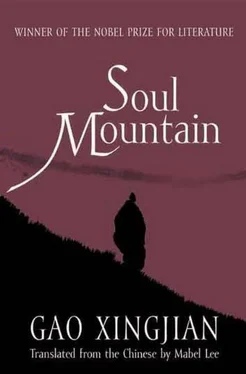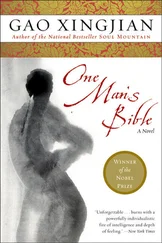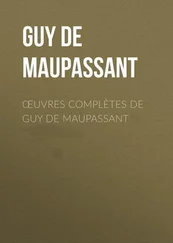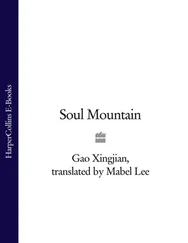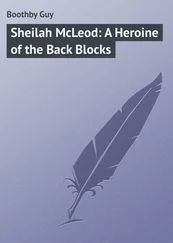“The woman in the photo?” I can’t tell if he’s joking.
This tall, bespectacled, old schoolmate of mine in the photo is wearing a geological fieldwork outfit. He has a rustic look and reminds me a little of Pierre in Tolstoy’s War and Peace . When I first read the novel he was quite thin although at the time he was already wearing glasses on his kindly round face. His glasses as always are sitting on his nose and he looks very much like that bookish character in the illustrations of Tolstoy’s works by a Russian artist. However the woman warrior by his side, who comes just to his shoulders, is dressed like a peasant in a big coat with buttons down the front, baggy trousers and a pair of shovel-nose army galoshes. She has a genderless face with small eyes and the only indication of her being female is her ear-length hair cropped in the style for women cadres in the villages. She in no way resembles the women warriors of my novels, paintings, and picture-books, poised for battle in their belted fighting clothes in breathtakingly heroic stances and with beautiful phoenix-like eyes.
“Don’t underestimate her. She’s every bit an expert in the martial arts and has killed lots of people,” he says seriously.
On my way east from Zhuzhou, the train is running behind schedule and stops at a small station, probably to let through the special express coming from the other direction. When I see the name of the station, I suddenly remember that this old classmate of mine works here with a mining exploration team. We hadn’t been in touch for over ten years, then last year the editor of a publishing house forwarded the manuscript of a novel this old classmate had sent me. The name of this place was written on the envelope. I don’t have his address on me but there couldn’t be that many exploration teams in a small place like this and it shouldn’t be hard to track him down. I get off the train right away. He is a good friend from childhood days. There aren’t many happy things in life and it is wonderful to meet old friends by chance.
When I set out from Changsha with a change of trains at Zhuzhou I had not intended to make a stopover. I had neither relatives nor anyone I knew in Zhuzhou, and there were no folk customs or archaeological artefacts to investigate. Nevertheless, I spent a whole day wandering along the Xiang River and in the city. It was only afterwards that I realized it was to track down yet another, it would seem, futile image from the past.
It was twelve or thirteen years since I was hounded out of Beijing carrying a bedroll like a refugee to undertake “re-education” at what was known as the May Seventh Cadre School located in this mountainous region. As a child, I had once fled as a refugee through this very region. Personal relationships within organizations were tense because of the constantly changing political movements and people were shouting slogans and clinging tenaciously to their own factions for fear of being labelled the enemy by their opponents. Then suddenly a new “highest instruction” arrived and army representatives were stationed in all cultural organizations and everyone was moved en masse to this mountain region to work in the fields.
I have been a refugee from birth. When my mother was alive she said she gave birth to me while planes were dropping bombs. The windows of the delivery room in the hospital had strips of paper pasted on them to stop them shattering when there were explosions. Luckily she escaped the bombs and I was born safely. However, I couldn’t cry and it was only with the doctor slapping my bottom that I could cry. My birth probably predetermined my habit of being perpetually on the run in life and I have grown accustomed to upheavals and learnt to find a little pleasure in the intervals between. So while the others of our group of evacuees at the time were sitting in a daze on their bedrolls and waiting on the platform, I left my bedroll with someone and, like a stray dog, wandered around the streets and alleys of the city. I ran into a diehard from an opposition faction in a little restaurant. At the time pork was rationed and each person was allotted one meat coupon per month which could be used to buy one jin of meat. I guessed that he, like me, must have wanted to eat meat. The restaurant turned out to have dog meat with chilli. I and he each ordered a plate. I and he had both been reduced to living away from home and so shared a table and began to squabble over buying the liquor. The two of us drank liquor and ate dog meat as if this life and death class struggle did not exist, neither was an enemy and of course neither mentioned politics. There was in fact quite a lot to talk about — in this old street without coupons you could buy toilet paper smelling like hay, local cloth and tea. You could also buy five-spice peanuts which you couldn’t even get in Beijing. He and I had bought some and took them from our bags to put on the table to eat with the liquor. It was this scrap of inconsequential memory led me to spend an entire day at Zhuzhou when changing trains during the journey from Changsha. So there is every reason for me to bring some unexpected happiness to a good friend from the days of my youth.
I book a bed at a hostel and deposit my backpack. If I can’t find him, at least I’ll be able to have a sleep at the hostel then catch the early morning train.
I eat a bowl of green soya bean porridge at the stall selling late night snacks and my fatigue vanishes. I ask the public office cadre who is slouched in a chair and cooling off outside the entrance to the tax office if there is a mining exploration team in the area. He sits up and immediately confirms that there is — first he says it is two li off, then three, and at most five. At the end of the street where there are no streetlights, I go into the small lane, through the paddy fields, across the small river over the wooden bridge, and on the other side not far off are some isolated new-style buildings. That’s the exploration team.
It is a summer night and the sky is filled with stars and everywhere I can hear the din of croaking frogs. I step into a puddle but this doesn’t worry me, I am determined to find my friend and about midnight I have groped my way through the dark and am knocking on his door.
“You devil!” he calls out, excited and surprised. Big and fat and clad in nothing but a pair of shorts, he wildly hits at me with his big reed fan and stirs up a breeze. It is that old habit from childhood when everyone used to slap one another on the shoulders. At the time I was the youngest and everyone in the class called me Little Devil. Now I suppose I am an old devil.
“How did you get here?”
“I crawled up out of the ground,” I say. I too am really happy.
“Bring out some liquor, no, bring some watermelon, it’s too hot,” he calls out to his wife, a solid, sturdy woman who seems to be a local. She smiles but says very little. He has obviously settled here but has lost nothing of his earlier bravado.
He asks if I received the manuscript he sent. He says he saw some of the things I had published over the past few years, thought it had to be me, so he sent the manuscript to the editorial department of one of the publishers and asked them to forward it. It worked and we have actually made contact. He says he also has an urge to write, an irrepressible urge, so he wrote this to see how it would go.
What can I say? This novel of his was about a country boy scorned by his classmates because his grandfather was an old landlord and every day he listened to his teacher saying that the lines between class enemies had to be clearly demarcated. He felt that the source of all his miseries stemmed from this ailing old man who simply wouldn’t die, so he put into the old man’s medicinal brew some medical cherry flower, a noxious weed which even has to be picked out of greenfeed for pigs. The next morning, when the village public broadcast system started singing “The East is Red” to summon the villagers to the fields to work, the boy woke and saw the old man sprawled on the ground. His mouth was covered in black blood and he was dead. It was a novel about the psychology of a child, and examined this senseless world through the eyes of a peasant boy. I showed the manuscript to an editor I knew. He didn’t give the usual spiel for rejecting manuscripts by spouting off a whole lot of official literary jargon like the episodes lack refinement, it is poorly conceived, the characters are not convincing or it lacks typicality in presentation. Instead, he said bluntly that he thought it was well written but that the author had gone too far — the leadership would certainly not approve so the work was therefore unpublishable. I could only say that the author was doing exploration work in the countryside and was used to how it was in the mountains. He couldn’t be expected to understand the criteria of the present literary world. This is exactly what I tell him.
Читать дальше
Конец ознакомительного отрывка
Купить книгу
